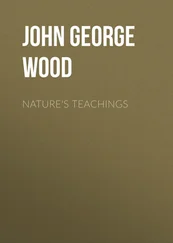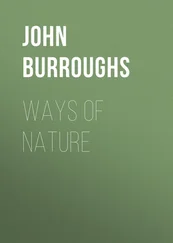John Fiske - Through Nature to God
Здесь есть возможность читать онлайн «John Fiske - Through Nature to God» — ознакомительный отрывок электронной книги совершенно бесплатно, а после прочтения отрывка купить полную версию. В некоторых случаях можно слушать аудио, скачать через торрент в формате fb2 и присутствует краткое содержание. Жанр: foreign_religion, foreign_antique, foreign_prose, на английском языке. Описание произведения, (предисловие) а так же отзывы посетителей доступны на портале библиотеки ЛибКат.
- Название:Through Nature to God
- Автор:
- Жанр:
- Год:неизвестен
- ISBN:нет данных
- Рейтинг книги:3 / 5. Голосов: 1
-
Избранное:Добавить в избранное
- Отзывы:
-
Ваша оценка:
- 60
- 1
- 2
- 3
- 4
- 5
Through Nature to God: краткое содержание, описание и аннотация
Предлагаем к чтению аннотацию, описание, краткое содержание или предисловие (зависит от того, что написал сам автор книги «Through Nature to God»). Если вы не нашли необходимую информацию о книге — напишите в комментариях, мы постараемся отыскать её.
Through Nature to God — читать онлайн ознакомительный отрывок
Ниже представлен текст книги, разбитый по страницам. Система сохранения места последней прочитанной страницы, позволяет с удобством читать онлайн бесплатно книгу «Through Nature to God», без необходимости каждый раз заново искать на чём Вы остановились. Поставьте закладку, и сможете в любой момент перейти на страницу, на которой закончили чтение.
Интервал:
Закладка:
John Fiske
Through Nature to God
Soyez comme l'oiseau posé pour un instant
Sur des rameaux trop frêles,
Qui sent ployer la branche et qui chante pourtant,
Sachant qu'il a des ailes!
PREFACE
A single purpose runs throughout this little book, though different aspects of it are treated in the three several parts. The first part, "The Mystery of Evil," written soon after "The Idea of God," was designed to supply some considerations which for the sake of conciseness had been omitted from that book. Its close kinship with the second part, "The Cosmic Roots of Love and Self-Sacrifice," will be at once apparent to the reader.
That second part is, with a few slight changes, the Phi Beta Kappa oration delivered by me at Harvard University, in June, 1895. Its original title was "Ethics in the Cosmic Process," and its form of statement was partly determined by the fact that it was intended as a reply to Huxley's famous Romanes lecture delivered at the University of Oxford in 1893. Readers of "The Destiny of Man" will observe that I have here repeated a portion of the argument of that book. The detection of the part played by the lengthening of infancy in the genesis of the human race is my own especial contribution to the Doctrine of Evolution, so that I naturally feel somewhat uncertain as to how far that subject is generally understood, and how far a brief allusion to it will suffice. It therefore seemed best to recapitulate the argument while indicating its bearing upon the ethics of the Cosmic Process.
I can never cease to regret that Huxley should have passed away without seeing my argument and giving me the benefit of his comments. The subject is one of a kind which we loved to discuss on quiet Sunday evenings at his fireside in London, many years ago. I have observed on Huxley's part, not only in the Romanes lecture, but also in the charming "Prolegomena," written in 1894, a tendency to use the phrase "cosmic process" in a restricted sense as equivalent to "natural selection;" and doubtless if due allowance were made for that circumstance, the appearance of antagonism between us would be greatly diminished. In our many talks, however, I always felt that, along with abundant general sympathy, there was a discernible difference in mental attitude. Upon the proposition that "the foundation of morality is to … give up pretending to believe that for which there is no evidence," we were heartily agreed. But I often found myself more strongly inclined than my dear friend to ask the Tennysonian question: —
"Who forged that other influence,
That heat of inward evidence,
By which he doubts against the sense?"
In the third part of the present little book, "The Everlasting Reality of Religion," my aim is to show that "that other influence," that inward conviction, the craving for a final cause, the theistic assumption, is itself one of the master facts of the universe, and as much entitled to respect as any fact in physical nature can possibly be. The argument flashed upon me about ten years ago, while reading Herbert Spencer's controversy with Frederic Harrison concerning the nature and reality of religion. Because Spencer derived historically the greater part of the modern belief in an Unseen World from the savage's primeval world of dreams and ghosts, some of his critics maintained that logical consistency required him to dismiss the modern belief as utterly false; otherwise he would be guilty of seeking to evolve truth from false-hood. By no means, replied Spencer: "Contrariwise, the ultimate form of the religious consciousness is the final development of a consciousness which at the outset contained a germ of truth obscured by multitudinous errors." This suggestion has borne fruit in the third part of the present volume, where I have introduced a wholly new line of argument to show that the Doctrine of Evolution, properly understood, does not leave the scales equally balanced between Materialism and Theism, but irredeemably discredits the former, while it places the latter upon a firmer foundation than it has ever before occupied.
My reference to the French materialism of the eighteenth century, in its contrast with the theism of Voltaire, is intended to point the stronger contrast between the feeble survivals of that materialism in our time and the unshakable theism which is in harmony with the Doctrine of Evolution. When some naturalist like Haeckel assures us that as evolutionists we are bound to believe that death ends all, it is a great mistake to hold the Doctrine of Evolution responsible for such a statement. Haeckel's opinion was never reached through a scientific study of evolution; it is nothing but an echo from the French speculation of the eighteenth century. Such a writer as La Mettrie proceeded upon the assumption that no belief concerning anything in the heavens above, or the earth beneath, or the waters under the earth, is worthy of serious consideration unless it can be demonstrated by the methods employed in physical science. Such a mental attitude was natural enough at a time when the mediæval theory of the world was falling into discredit, while astronomy and physics were winning brilliant victories through the use of new methods. It was an attitude likely to endure so long as the old-fashioned fragmentary and piecemeal habits of studying nature were persisted in; and the change did not come until the latter half of the nineteenth century.
The encyclopædic attainments of Alexander von Humboldt, for example, left him, to all intents and purposes, a materialist of the eighteenth century. But shortly before the death of that great German scholar, there appeared the English book which heralded a complete reversal of the attitude of science. The "Principles of Psychology," published in 1855 by Herbert Spencer, was the first application of the theory of evolution on a grand scale. Taken in connection with the discoveries of natural selection, of spectrum analysis, and of the mechanical equivalence between molar and molecular motions, it led the way to that sublime conception of the Unity of Nature by which the minds of scientific thinkers are now coming to be dominated. The attitude of mind which expressed itself in a great encyclopædic book without any pervading principle of unity, like Humboldt's "Kosmos," is now become what the Germans call ein ueberwundener Standpunkt , or something that we have passed by and left behind.
When we have once thoroughly grasped the monotheistic conception of the universe as an organic whole, animated by the omnipresent spirit of God, we have forever taken leave of that materialism to which the universe was merely an endless multitude of phenomena. We begin to catch glimpses of the meaning and dramatic purpose of things; at all events we rest assured that there really is such a meaning. Though the history of our lives, and of all life upon our planet, as written down by the unswerving finger of Nature, may exhibit all events and their final purpose in unmistakable sequence, yet to our limited vision the several fragments of the record, like the leaves of the Cumæan sibyl, caught by the fitful breezes of circumstance and whirled wantonly hither and thither, lie in such intricate confusion that no ingenuity can enable us wholly to decipher the legend. But could we attain to a knowledge commensurate with the reality – could we penetrate the hidden depths where, according to Dante ( Paradiso , xxxiii. 85), the story of Nature, no longer scattered in truant leaves, is bound with divine love in a mystic volume, we should find therein no traces of hazard or incongruity. From man's origin we gather hints of his destiny, and the study of evolution leads our thoughts through Nature to God.
Читать дальшеИнтервал:
Закладка:
Похожие книги на «Through Nature to God»
Представляем Вашему вниманию похожие книги на «Through Nature to God» списком для выбора. Мы отобрали схожую по названию и смыслу литературу в надежде предоставить читателям больше вариантов отыскать новые, интересные, ещё непрочитанные произведения.
Обсуждение, отзывы о книге «Through Nature to God» и просто собственные мнения читателей. Оставьте ваши комментарии, напишите, что Вы думаете о произведении, его смысле или главных героях. Укажите что конкретно понравилось, а что нет, и почему Вы так считаете.












